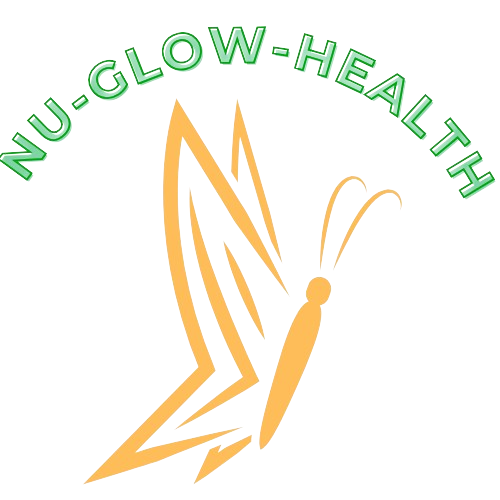If you’re seeking natural ways to support your mental well-being and lift your spirits, you’ve come to the right place. In this ultimate guide, we will explore how making simple changes to your diet can have a profound impact on your mood and overall mental health. Get ready to discover the power of nutrition and nourish your way to a brighter mind.
First Steps toward a Happier Mind
When it comes to managing depression, taking the first steps toward a healthier lifestyle is crucial. While nutrition is not a substitute for professional help, it can play a significant role in supporting your mental well-being. Here are some initial steps you can take:
Seek Professional Guidance: If you’re experiencing symptoms of depression, it’s important to reach out to a healthcare professional or a mental health specialist. They can provide an accurate diagnosis, develop an appropriate treatment plan, and offer personalized dietary recommendations to complement your overall care.
Embrace a Positive Mindset: Adopting a positive mindset can set the stage for positive changes in your life. While it may seem challenging at times, consciously focusing on gratitude, self-compassion, and engaging in activities that bring you joy can help shift your perspective and lay the foundation for a brighter mind.
Changing Your Diet for Mental Well-being
The food you consume has a profound impact on your mental health. By making specific changes to your diet, you can support your brain chemistry, optimize nutrient intake, and enhance your mood. Let’s explore some key dietary changes:
Ditch Unhealthy Foods: Start by eliminating or reducing processed foods, refined sugars, and saturated fats from your diet. These foods can contribute to inflammation and negatively affect your mood and overall well-being. Instead, opt for whole, unprocessed foods that nourish your body and support brain health.
Incorporate Mood-Boosting Nutrients: Certain nutrients have been linked to improved mood and mental health. Include foods rich in omega-3 fatty acids (such as fatty fish, walnuts, and flaxseeds), B vitamins (found in leafy greens, legumes, and whole grains), and antioxidants (abundant in colorful fruits and vegetables) to support your brain and uplift your spirits.
Transform Your Health with a Healthier Diet
By transforming your diet and embracing a nutrient-rich eating plan, you can elevate your mental well-being and support your journey toward overcoming depression. Here’s your ultimate guide to a healthier diet:
Increase Consumption of Fruits and Vegetables: Fill your plate with a variety of colorful fruits and vegetables. These nutrient powerhouses are packed with vitamins, minerals, and antioxidants that promote brain health and reduce the risk of depression. Aim for at least five servings per day and experiment with different types to keep things interesting.
Prioritize Lean Proteins: Incorporate lean proteins, such as skinless poultry, fish, legumes, and tofu, into your meals. Protein-rich foods provide amino acids that serve as the building blocks for neurotransmitters, which regulate mood and emotions.
Choose Complex Carbohydrates: Opt for complex carbohydrates like whole grains, brown rice, quinoa, and sweet potatoes. These carbohydrates provide a steady release of energy and help regulate serotonin levels, a neurotransmitter associated with mood and well-being.
The Impact of Gut Health on Mental Health
Did you know that your gut health is intricately linked to your mental health? The gut-brain connection is a fascinating area of study, and nurturing your gut can have a positive impact on your mood. Here’s what you need to know:
Embrace Probiotic Foods: Probiotics, known as the “good” bacteria, are essential for a healthy gut. Incorporate fermented foods like yogurt, kefir, sauerkraut, and kimchi into your diet. These foods help maintain a balanced gut microbiome, which has been associated with improved mood and reduced symptoms of depression.
Include Prebiotic Foods: Prebiotics are fibers that serve as fuel for the beneficial bacteria in your gut. Foods such as garlic, onions, asparagus, bananas, and whole grains are excellent sources of prebiotics. By nourishing your gut bacteria, you support a healthy gut environment and potentially alleviate symptoms of depression.
Frequently Asked Questions (FAQ)
Q1: Can nutrition alone cure depression?
A1: While nutrition plays a crucial role in supporting mental health, it is not a standalone cure for depression. It is essential to seek professional help and consider a holistic approach that includes therapy, medication (if prescribed), and lifestyle modifications, including dietary changes.
Q2: Are there any specific foods to avoid for depression?
A2: While it’s important to focus on nourishing foods, it’s recommended to limit or avoid processed foods, refined sugars, saturated fats,and artificial additives. These foods can contribute to inflammation and negatively impact mood and overall well-being.
A Personal Story of Transformation
I’d like to share a personal story that highlights the transformative power of nutrition on mental health. Meet Sarah, a vibrant woman who battled depression for years. Through a combination of therapy, medication, and dietary changes, she was able to regain control of her life. Sarah incorporated nutrient-dense foods into her diet, prioritized self-care, and surrounded herself with a supportive network. Today, she continues to thrive and serves as an inspiration to others facing similar challenges.
Remember, taking care of your nutritional well-being is just one piece of the puzzle when it comes to managing depression. It’s important to seek professional help and develop a comprehensive plan tailored to your individual needs. But with the right mindset and dietary changes, you can pave the way for a brighter mind and a healthier, happier you.






